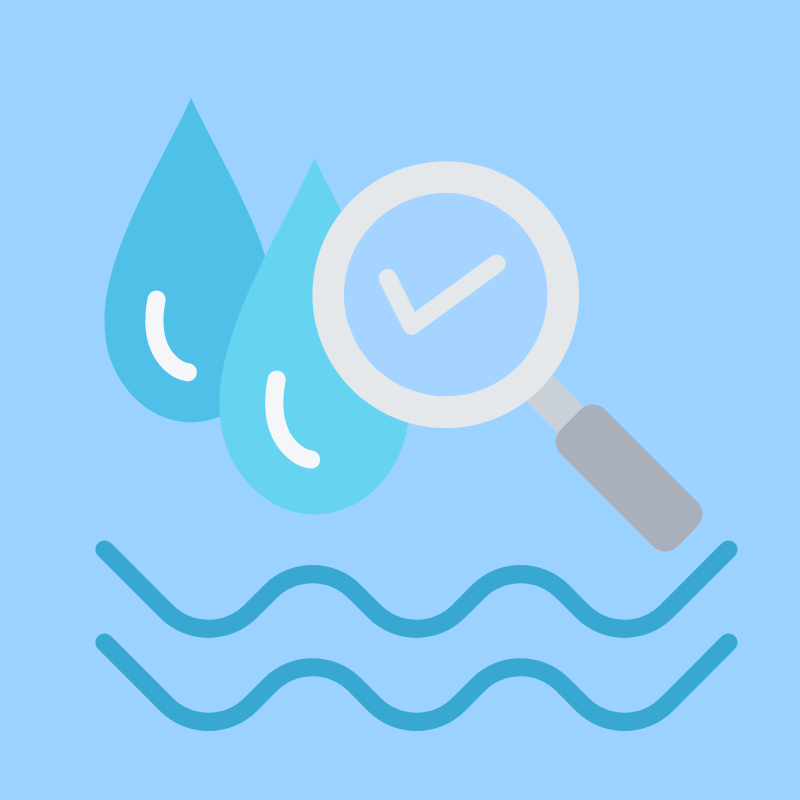We often take water for granted, but its quality impacts every aspect of our daily lives—from the taste of our drinking water to the lifespan of our plumbing systems, fixtures, and water-using appliances. In this article, we will explain why water quality is so important, discuss common issues that can reduce water quality, and highlight how a professional plumber can help you enjoy cleaner, fresher, and healthier water.
The Importance Of Water Quality
Water quality includes the chemical, biological, and physical characteristics of the water being delivered to your home. We all expect and deserve water that is good for us and good for our homes. Here, we will discuss how it impacts our lives.
Health
The most important reason to ensure good water quality is your health. Contaminated water can carry harmful bacteria, viruses, and chemicals that can cause serious issues that can lead to illnesses. Clean, high-quality water is essential for drinking, cooking, and bathing without fear of negative consequences.
Taste And Smell
High-quality water should be free of any unpleasant tastes or odors. Water that smells like chlorine or tastes metallic can be off-putting and indicate the presence of contaminants. It should also be free of particles such as rust from corroding pipes or cloudiness from hard water minerals.
Appliance Longevity
Hard water, which contains high levels of minerals like calcium and magnesium, can cause scale buildup in appliances, reducing their efficiency and shortening their lifespan. Limescale is a by-product of hard water and is known for deteriorating faucets, showerheads, and appliance components.
Skin And Hair
Poor water quality can affect your skin and hair, making them dry, brittle, and irritated. Soft, clean water helps maintain moisture and will leave your skin and hair moisturized and healthy-looking.
Plumbing System Health
Contaminants in water can cause corrosion which will destroy plumbing pipes from the inside out. Corroding pipes will leave behind sediment and particles in your drinking water that are aesthetically unappealing and potentially dangerous. As the corroding matter accumulates, it creates blockages in your pipes, leading to leaks and costly repairs.
Common Issues Affecting Water Quality
Although the water delivered to your home has been treated, which causes homeowners to assume it is safe to drink automatically, this is not the case. Hidden problems can lurk in your water supply that are not observed by the naked eye. Here are several common issues that can affect the quality of your home’s water.
Hard Water
Hard water contains high levels of dissolved minerals, primarily calcium and magnesium. These minerals can deposit on fixtures, clog pipes, and reduce the efficiency of your water heater. Hard water affects more than 85% of US homes so it is an issue that must be frequently addressed by plumbers.
Chlorine
While chlorine is always used to disinfect municipal water supplies, it can leave a strong taste and smell in your drinking water. Not only is this smell and taste offensive, but long-term exposure to high levels of chlorine can also have adverse health effects.
Sediment
Sediment, including sand, silt, and rust, can enter your water supply through old deteriorating pipes or from the water source itself. This can make your water appear cloudy and can also clog your plumbing fixtures, decreasing water pressure.
Microbial Contaminants
Bacteria, viruses, and parasites can enter your water supply and pose serious health risks. Little used plumbing can cause water stagnation and contaminants like E. coli and Giardia can cause serious gastrointestinal illness.
Chemical Contaminants
Pesticides, heavy metals, and industrial chemicals can find their way into your water supply from improperly disposed waste materials and runoff, especially if you live near agricultural or industrial areas.
How a Professional Plumber Can Help Improve Water Quality
There are several reasons why contacting a professional plumber is essential for improving your water quality. Often, DIYers believe they have the skills and knowledge to correct these issues, but these problems are tricky to diagnose and require advanced knowledge to rectify.
Accurate Diagnosis
A professional plumber can conduct thorough tests to identify the specific issues affecting your water quality. They have the tools and expertise to detect contaminants that might not be obvious to the untrained eye.
Water Softening Solutions
If hard water is a problem in your home, a plumber can install a salt-based or salt-free water softener to remove excess minerals. This can prevent scale buildup, extend the life of your appliances, and improve the feel of the water on your skin and hair.
Filtration Systems
Professional plumbers can also recommend and install various water filtration systems tailored to your specific needs. Systems designed to remove certain contaminants are available, and a professional can guide you through testing your water and selecting just the right filtration system. These systems can remove chlorine, sediment, and other contaminants, providing you with clean and safe drinking water.
Routine Maintenance
Regular maintenance is crucial to ensure your water treatment systems function effectively. A plumber can perform routine checks and maintenance, replacing filters and making necessary adjustments to keep your water quality high. DIYers often have good intentions and high hopes for providing maintenance, but they often become busy and forget to take the necessary steps.
Leak Detection and Repair
Leaks can introduce contaminants into your water supply and allow dirt and debris into your water supply. A professional plumber can identify and repair leaks in your plumbing system, ensuring that your water remains clean and free from contaminants.
Simple Steps Homeowners Can Take
While professional assistance is crucial, some simple DIY steps can be taken to help maintain good water quality in your home.
Regular Cleaning
Clean your faucets and showerheads regularly to prevent mineral buildup. A stiff brush and white vinegar can remove the white, chalky deposits known as limescale.
Use Filters
In addition to whole-home filtration units, you can install simple faucet filtration systems that clean the water supply at the faucet. Basic pitcher filters also help remove contaminants and improve your water supply, which is far more gentle on the wallet.
Flush Your System
Periodically engage a professional plumber to flush your water heater to remove sediment accumulations and your plumbing system to remove the build-up of grease and other clogging materials that can negatively affect your drinking water.
Stay Informed
Pay attention to the literature sent by your water provider regarding the quality of the water entering your home. By law, they must alert you to any potential issues with your
Looking To Improve The Quality Of Your Water?
Improving the water quality in your home is essential for your health, the longevity of your appliances, and the overall comfort of your living environment. By understanding the common issues that affect water quality and taking proactive steps, including consulting a professional plumber, you can ensure that your water is safe, clean, and enjoyable.
So, let’s applaud increased water quality, which will lead to better health and a more efficient home! Remember, an outstanding plumber is invaluable for maintaining the best quality water available. Call VIP PlumbingOK for all your water quality improvements. You’ll be glad you did!

